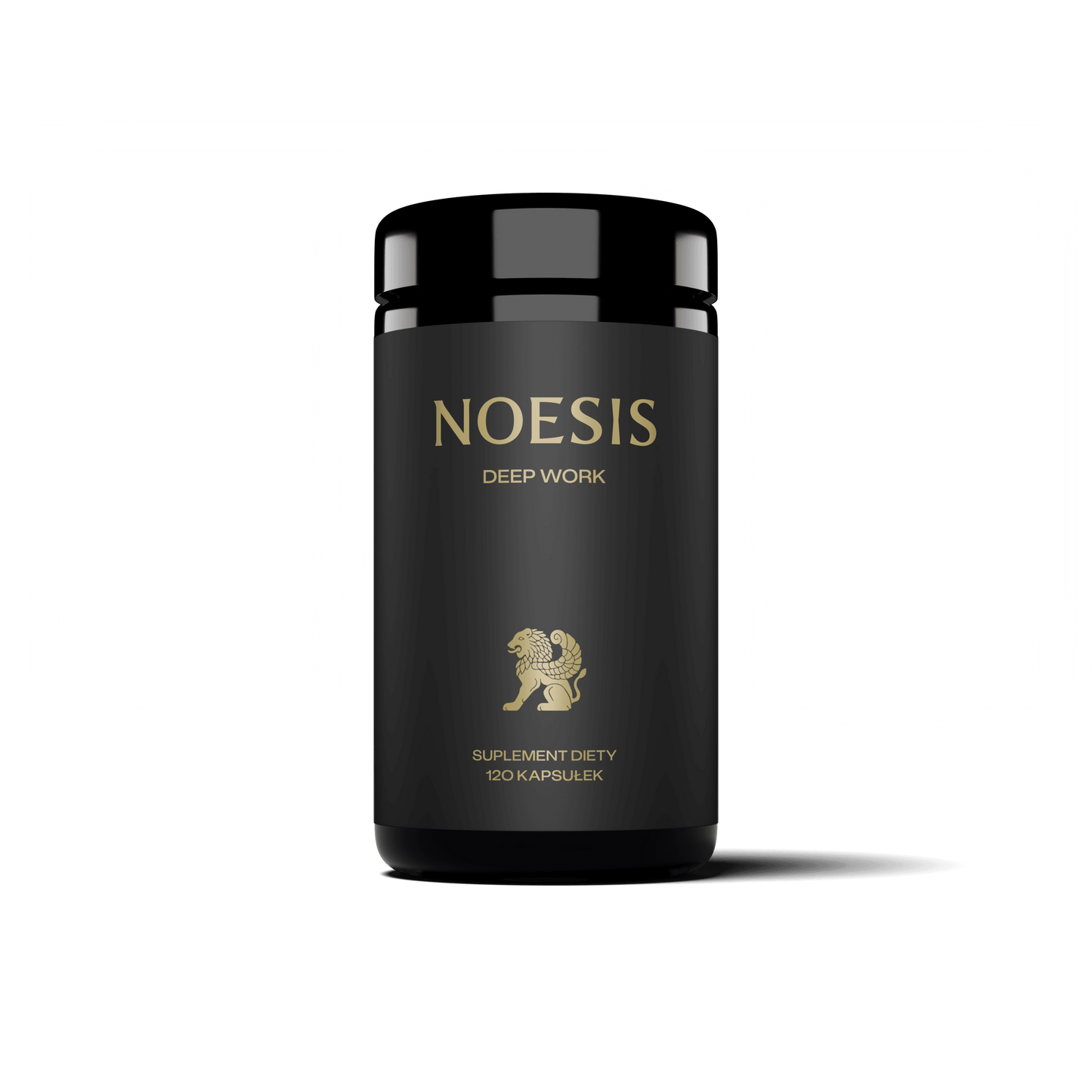
You know that feeling when you learn something new and after a few days you can't even remember half of it? It's not a matter of bad memory, but of lack of strategy. The brain is not a hard drive that records everything it sees. It's a selective system. It only records what it deems important. The truth is that if you learn "anyhow", you'll remember anything.
Effective learning is not just about spending long hours with a book or repeating notes until you're bored. It is primarily a conscious approach to information processing, i.e. the way your brain encodes, stores and recalls what you learn. It is not what you remember that matters, but how you do it.
For years, cognitive psychology has provided evidence that there are specific techniques that work better than others. It's not magic, just proven methods.
In this article, you’ll look at the most effective memorization techniques you can implement right away. Whether you’re preparing for an exam, learning a language, or trying to memorize complicated professional materials, this mechanism works.
Concentration and cognitive ability
The basis for effective memorization is not the "quality" of memory but concentration, or the ability to maintain attention on one task or topic, despite the stimuli appearing around you. It is this ability that decides whether you have a chance to process and consolidate new information at all. If your attention wanders while learning, you check your phone in the meantime , think about tomorrow's duties, are distracted by noise, are unable to concentrate. As a result, your brain does not register the content enough to remember it. In practice, you learn longer, with less effect.
Studies show that concentration is a skill that can be trained. Regular work on concentration can really improve your concentration level. Without concentration, no memorization strategy will work, because without presence and focus, the brain does not process information deeply enough to create lasting memory traces.
Equally important is cognitive ability, or the overall efficiency of the brain in absorbing, analyzing, and using information. It is responsible for how quickly and effectively you learn new things, how efficiently you draw conclusions, solve problems, or connect facts.
Cognitive ability can be developed. How? Through regular intellectual exercises, such as solving logical tasks, memory training, learning new languages, as well as through active listening, reading with comprehension and analyzing materials from various fields. Working with text, charts, educational films or infographics develops different areas of the brain and makes it more flexible and ready to process new information.
Importantly, these skills are useful not only at school or college. High cognitive ability and good concentration are key at work, in business, and even in everyday functioning when making decisions, managing time, solving problems, or learning new skills.
So if you feel like you have trouble concentrating, that learning is difficult, or that you can't process a lot of information, stop looking for excuses. Take care of the foundation: focus and cognitive activity. It's not a matter of talent, it's a matter of training.

Pillars of effective learning
Speaking out loud
In an experiment conducted by Prof. Wiktor Boucher from Laval University, participants were divided into three groups. One group had to repeat the material in their minds, the other aloud, and the third group had to explain it to another person. The results were clear. The people from the third group, who had to formulate and say the content, remembered the most. Just talking, even to someone who is not listening, strengthens the process of encoding information.
Learning from others
Another technique that is becoming increasingly popular is learning by teaching, also known as the “protégé effect.” In practice, this means that you prepare the material not only with yourself in mind, but as if you were going to explain it to another person. The very process of organizing knowledge, formulating questions and answering them in your own words engages the brain more deeply and forces it to process information much more actively. You don’t have to have a real student—all you need to do is start thinking as if you were going to explain the subject to someone close to you. In this way, the knowledge is better encoded because it becomes more organized and understandable.
Although the protégé effect and the conclusions from Professor Wiktor Boucher's experiment seem very similar, they concern slightly different aspects of the memorization process. The protégé effect is based mainly on preparing material with the intention of teaching. The whole process includes organizing knowledge, creating a structure, creating logical connections, and simplifying information so that it is understandable to another person.
Prof. Boucher's study, on the other hand, focused on the act of speaking, on explaining the content out loud, even if the other person is not listening. It turned out that saying the information activates different areas of the brain than silent repetition, thanks to which the content is better retained. In practice, the best results are achieved by combining both techniques. Prepare the material as if you were going to teach someone, and then start explaining it, even to yourself. This is a simple but very effective strategy that significantly improves the durability of remembered content.
Explain as if to a child
Another effective method, which comes from Nobel Prize winner Richard Feynman, is the technique of learning by explaining. The principle is simple: choose a topic you want to master, and then try to explain it to yourself as if you were talking to a child. If you can't put something into simple words, you don't understand it well enough. In that case, you go back to the source, fill in the gaps, and then explain the whole thing again. This type of process engages logical thinking, teaches you to structure your knowledge, and reveals gaps that would otherwise go unnoticed.
Testing
In a study by Roediger and Karpicke, participants were asked to learn a text. Then some of them were asked to answer a series of questions, while others were allowed only to review. When their knowledge was tested again a week later, those who had not been asked the questions had more difficulty . Those who had participated in answering the questions performed better. This clearly showed that testing significantly enhanced memorization.
Repetition
Another study also found that spaced repetitions are more effective than continuous learning. People who studied in several shorter sessions with breaks in between achieved better results than those who learned the material in one, intensive burst. This is the so-called spacing effect. The brain processes information better when it has time to rest between learning.
Words and image
Also worth noting is the method of double coding information, which is based on the theory of Professor Allan Paivio. It assumes that the human brain remembers material much better when it is presented in both verbal and visual form. Putting this into practice: it is worth drawing simple diagrams, schemes, symbols or mind maps while learning. Even if you have no artistic talent - active creation counts, not aesthetics. Combining words with images allows the brain to encode information on two independent paths, which increases the chance of their later reproduction.
Active learning
In a series of studies conducted by Dunlosky and his team, the effectiveness of different learning strategies was compared. One group was asked to read and listen, the other to actively process content, i.e. paraphrase, create associations and mind maps. It turned out that the first group had more difficulty in retrieving knowledge than the participants from the second group. The conclusion was clear. Active learning engages the brain better, consequently allowing for more effective assimilation of new information.
Time blocks
The last technique worth mentioning is the so-called cognitive sprints, or short, intensive blocks of intellectual work. Instead of planning your studies for many hours, it is better to set up 10-15 minute sessions of maximum focus on one specific topic. During this time, you do not take notes, check anything additional, or analyze. You simply engage your full attention in working on the selected material. After such a sprint, you take a short break and move on to the next topic. This rhythm allows you to avoid overload and uses the natural windows of alertness in which the brain works most effectively.
Emotions and scents
In a classic study by psychologist Gordon H. Bower, participants were put into different emotional states—positive or negative—and asked to learn material. Then, the same moods were reactivated before testing. They found that participants recalled the material better when their mood at the time of retrieval matched their mood at the time of learning. This effect was called mood congruence, and it confirmed that emotions strengthen the durability of memory traces.
In turn, researchers from the University of Freiburg conducted an experiment involving the scent of roses. One group of participants learned the material in the presence of the scent and were then exposed to the same scent during sleep. The other group had no contact with the scent during sleep. The results showed that the group that was exposed to the scent twice was significantly better at recalling the material. The scent acted as a contextual stimulus, activating a previously formed memory trace.

Physical activity
Concentration and cognitive ability are influenced not only by how you learn, but also by how often you move. More and more research confirms that regular physical activity is not only a support for a healthy body, but also a powerful tool for strengthening cognitive processes. A study by Charles Hillman from the University of Illinois showed that children participating in daily physical activity learned faster, focused better, and were more efficient at solving problems.
In a similar study conducted by Josie Booth on a group of 5,000 students from Scotland, a clear relationship was observed: the more exercise, the better results in tests of maths, English and science. The differences were measurable, reaching even 1 point on the test scale, which is a significant jump on the school scale.
This correlation is also confirmed by the results of research by Michael W. Beets from UCLA. His observations show that children who exercise regularly not only cope better with learning, but also show higher levels of motivation, fewer symptoms of anxiety and depression, better well-being and greater commitment to tasks. In summary, a healthy body supports a brain that learns better.

How to regain the ability to concentrate?
In a world that competes for our attention, the ability to focus is nearly impossible, which makes it more than just a useful trait. The ability to consciously focus gives you a real advantage. But concentration is not an inexhaustible resource. It drops when we are overtired, distracted, stressed, or overstimulated. That's why it's worth knowing simple, effective techniques that help you achieve maximum concentration and regain control over your attention.
Mindfulness Technique 5-4-3-2-1
One of the simplest methods of restoring focus is a mindfulness technique known as 5-4-3-2-1. This sensory exercise acts as a “reset” for a wandering mind. It uses the five senses to anchor you in the “here and now”. You start by identifying five things you see around you. Then you focus on four sounds you hear, which can be both external and internal, such as tinnitus. Then you focus on three things you feel, which can be skin temperature, muscle tension, the contact of your feet with the ground. The next step is to focus your attention on two smells. Finally, focus on a taste you can smell or remember. Although at first glance it sounds like child’s play, the effect is surprisingly powerful: the mind slows down, breathing stabilizes, and concentration returns to the right track. This technique is sometimes used in work with people who are cognitively overloaded, struggling with anxiety, but also in training for athletes and managers. Because it works. Fast, discreet and everywhere.
Relaxation techniques to support concentration
The second way to regain the ability to concentrate is through relaxation techniques, i.e. simple exercises that regulate the tension in the nervous system and help to "cut off" from excess stimuli.
One method is the 4-7-8 breathing exercise, which involves inhaling for 4 seconds, holding for 7 seconds, and then exhaling slowly for 8 seconds. This rhythm calms the sympathetic nervous system, lowers tension, and helps to calm the stress response. After a few repetitions, you may feel a drop in emotional pressure and a return of mental clarity.
Another effective technique is body scanning. This exercise involves consciously moving your attention through the body from the top of your head to your toes and noticing any tensions, impulses, or sensations. Simply “naming” what you feel is enough to trigger the relaxation process. This allows your body to regulate itself and your cognitive ability to grow because you stop fighting the overload and start acting from a mindful level.
Short visualizations are also effective, e.g. imagining a place that you associate with safety and peace. Use all your senses for this. Even a few dozen seconds of such work can "reset" the nervous system and increase the level of concentration.
All these techniques have one thing in common: they do not require special conditions or advanced preparation. You can use them between blocks of study, before an important meeting, during a break between classes. Their regular implementation not only improves concentration, but also increases resistance to stress, improves information processing and overall cognitive efficiency.
Effective learning every day
In short, effective learning is not a matter of good or bad memory. It is the result of a research-based approach. It is a system that you can implement every day, whether you are studying for an exam or acquiring new professional knowledge.
The ability to remember and learn can be developed. It is crucial to understand how our brain works, how it processes information and what allows it to be absorbed more effectively. The right conditions, emotions, an active approach, listening, asking questions, exercises - all this builds the ability to learn better in the future.
Most people who say they “don’t have a good memory” really don’t have a good strategy. By changing the way you study, you can really make a difference. And sooner than you think!







